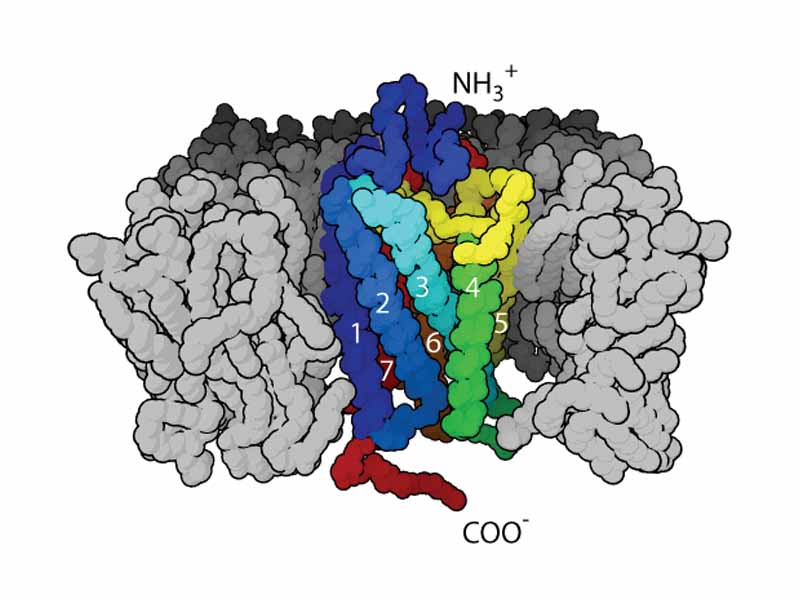Both single-celled organisms and cells within tissues can respond to changes within their extracellular environment, changes which trigger a biochemical series of events within the cell. The general mechanism involves the binding of extracellular molecules (signaling ligands) to specific receptors. The receptors then communicate the event of binding to the cell's interior through a signal transduction mechanism initiated by changes in the receptor, such as conformational changes or receptor dimerization.
Many different specific receptors have been identified that operate on the surface of human cells within various tissues. Signaling receptors fall within four general classes. The first class are the enzyme linked receptors which include the cytokine receptor family and growth factor receptor family. G protein-coupled receptors constitute the second class. For future doctors it is relevant to note that G protein-coupled receptors are the most important targets in modern pharmacology. The third group are receptors found intracellularly, which, upon ligand binding, proceed to alter gene transcription as transcription factors. The fourth class are ligand gated ion channels.
Conceptual Vocabulary for Signal Transduction
 The WikiPremed MCAT Course is a comprehensive course in the undergraduate level general sciences. Undergraduate level physics, chemistry, organic chemistry and biology are presented by this course as a unified whole within a spiraling curriculum. Please read our policies on Privacy and Shipping & Returns. Contact Us. MCAT is a registered trademark of the Association of American Medical Colleges, which does not endorse the WikiPremed Course. WikiPremed offers the customers of our publications or our teaching services no guarantees regarding eventual performance on the MCAT. The WikiPremed MCAT Course is a comprehensive course in the undergraduate level general sciences. Undergraduate level physics, chemistry, organic chemistry and biology are presented by this course as a unified whole within a spiraling curriculum. Please read our policies on Privacy and Shipping & Returns. Contact Us. MCAT is a registered trademark of the Association of American Medical Colleges, which does not endorse the WikiPremed Course. WikiPremed offers the customers of our publications or our teaching services no guarantees regarding eventual performance on the MCAT.

WikiPremed is a trademark of Wisebridge Learning Systems LLC. The work of WikiPremed is published under a Creative Commons Attribution NonCommercial ShareAlike License. There are elements of work here, such as a subset of the images in the archive from WikiPedia, that originated as GNU General Public License works, so take care to follow the unique stipulations of that license in printed reproductions. |
